Update time:2025-08-01Visits:6676

Dr. Xu Jianrong, radiology expert and former director of the Department of Radiology at Renji Hospital
Introduction
Fate is often a silent force—mysterious and unpredictable—nudging us forward in unexpected ways. But it is up to us to find wisdom and opportunity amid the twists and turns. As Dr. Xu himself once said, he is grateful to fate, because it granted him a medical journey that, though full of hardships, has been profoundly meaningful.
Xu Jianrong, a senior professor of radiology and former director of the Department of Radiology at Renji Hospital, has dedicated his career to clinical practice, academic advancement, and departmental development.
From the moment he entered medical school, Dr. Xu had a clear sense of direction and firmly chose to follow the path of medicine. This path has been filled with challenges and difficulties, but he has always believed it was the right choice. Through continuous learning and hands-on practice, he has grown and progressed—committed to contributing to public health through his lifelong dedication.
A Lifelong Journey in Medicine
In the summer of 1978, beneath the hum of cicadas and the sweltering heat, countless dreams were set in motion across China. That year marked the first reinstated national college entrance exam (gaokao) after the Cultural Revolution. Among 6.1 million candidates, a young student named Xu Jianrong stood out and was admitted to the most competitive medical school in the country at the time—Shanghai First Medical College (now part of Fudan University).
Looking back, Dr. Xu reflects with humility, “We were all beneficiaries of that era.”
“At the time, none of us really understood what the future held. We chose our majors mostly based on our teachers’ advice. I initially applied to study naval engineering at Shanghai Jiao Tong University. But one teacher told me, ‘No matter how the world changes, the value of being a doctor never fades. Society will revolve around people—and life is priceless.’ Those words struck a chord. I changed my application and chose medicine.”
His five years at Shanghai First Medical College marked the beginning of a lifelong journey in medicine.
“Had I missed the chance to attend medical school, it would have been one of my greatest regrets. It was during those years that I developed not only a foundation in medical knowledge, but also a professional mindset that would guide my future. The program encouraged independent learning—there was little direct supervision. By the time I reached graduate school, the learning process became entirely self-directed.”
Through rigorous training, Dr. Xu mastered the fundamentals of medicine while developing habits of independent thinking and problem-solving. He came to see medicine not just as a discipline, but as a lifelong responsibility.
After graduation, he hoped to pursue a master’s degree in subcellular pathology. He was admitted and looked forward to working with cutting-edge technologies—especially the electron microscope housed at Shanghai First Medical College, which was rare in China at the time and fascinated him deeply.
But fate had other plans. A national policy change that year led to the cancellation of many graduate programs, including his. With few alternatives, he accepted a reassignment to the radiology department at Shanghai Yueyang Hospital. Two years later, he reapplied and was admitted to the radiology program at Huashan Hospital, where he studied under the mentorship of Professor Chen Xingrong.
Professor Chen was a pioneering figure in Chinese radiology—fluent in English, French, and German, a former hospital president, and a leader in medical imaging. More importantly, he emphasized integrating culture and humanism into both work and life.
“Life doesn’t always give you choices,” Dr. Xu said. “Sometimes, you just have to follow where it leads—and find peace along the way.”
Despite the unexpected turns in his early career, Dr. Xu remains grateful for the challenges he faced, which made him more resilient and mature.
Under Professor Chen’s guidance, Dr. Xu immersed himself in the demanding world of radiology—a field requiring both technical precision and analytical rigor. He studied diligently, refined his skills through clinical observation and practice, and gradually established a reputation for diagnostic accuracy.
He now sees those early detours not as setbacks, but as formative stages of growth. “Whether in school or at work, adapting to change and confronting challenges head-on shaped who I am. These experiences taught me perseverance and humility.”
He also began to distinguish himself in research and project design, demonstrating strong capabilities in clinical study development.
In 1990, after completing his doctorate, Dr. Xu joined the Department of Radiology at Shanghai Sixth People’s Hospital—marking the start of a new chapter.
“I started as an attending physician, later became a team leader, and then deputy department director. With each step, my skills and confidence grew. I published three to four papers a year—at that time, that was considered a strong academic output in radiology, especially when publishing even a single Chinese-language article was no easy task.”
Reflecting on his decade at Shanghai Sixth People’s Hospital, Dr. Xu describes it as a period of intense personal and professional growth.
“Those ten years laid the foundation for my entire career. Without them—the challenges, the training, the refinement—I would not be the doctor I am today. That experience was transformative.”
During this time, he sharpened not only his clinical abilities but also his leadership and research skills. His work pushed the boundaries of imaging science and laid the groundwork for the distinguished career that followed.

Bringing Compassion and Expertise to Renji
In the year 2000, Dr. Xu Jianrong began a new chapter of his career as Director of the Department of Radiology at Renji Hospital. It was a meaningful turning point—one that brought both challenge and opportunity. At the time, Renji was already home to numerous nationally recognized departments, but radiology was not among them. For Dr. Xu, building the department would require vision, persistence, and deep transformation.
Reflecting on this journey, Dr. Xu divides his time at Renji into distinct phases: department development, improvement of clinical quality, and advancement in science and technology. Each stage, he notes, came with its own set of challenges.
“Like many young doctors, I once aspired to become a department chair, thinking that only in such a role could I truly fulfill my potential,” he recalled. “But once I stepped into that position, I quickly realized that leadership isn’t about prestige—it’s about responsibility. My mindset changed completely. Suddenly, I was thinking every day about how to cultivate talent, build the discipline, and raise academic standards. The pressure was immense.”

To lead the department effectively, Dr. Xu began by building a cohesive departmental culture—one centered on professionalism, shared values, and team spirit. He encouraged staff to shift their energy away from petty conflicts and toward shared goals in learning, clinical accuracy, and research. Through discussions and projects, he introduced specific performance indicators—such as reducing image rejection rates and improving diagnostic accuracy—to reshape team behavior and raise standards.
He also initiated a platform-based approach to restructuring the department. This included reassigning staff roles, reorganizing team structures, and identifying promising individuals for key positions. A revised incentive system was introduced to motivate productivity and professional development.
These reforms took three to four years to implement and were not without resistance. But Dr. Xu remained resolute.
“As long as a decision is made for the benefit of the entire department—not personal gain—then it’s worth standing by,” he said. “Every strategy comes with trade-offs. What matters is the courage to recognize challenges, confront them openly, and adjust the course as needed.”
Dr. Xu emphasized that professional expertise must always come first for a department leader. “You can’t earn the respect of your team without real skill,” he stated. “Beyond that, emotional intelligence is crucial—knowing how to build teams and manage relationships. A good leader must also create a fair platform where everyone has a chance to succeed. In the end, management alone isn’t enough. What truly earns trust is competence and integrity.”
Today, Dr. Xu is widely respected by colleagues across the hospital—not only for his technical excellence, but also for his academic temperament, broad vision, and principled leadership.
Since joining Renji Hospital, Dr. Xu has driven numerous innovations in clinical care and research. In his early years there, his focus was on improving diagnostic quality.
“I reviewed every complex image myself and explained findings to my team,” he said. “Back then, diagnostic accuracy was our top priority—high-quality care was the foundation of everything we did.”
As the hospital and society began to embrace innovation-driven development, Dr. Xu quickly recognized the shift.
“With the country prioritizing scientific and technological advancement, I saw the need to strengthen our research efforts,” he said. “Innovation became essential.”
He introduced subspecialization within the department—an effort that began over a decade ago. Initially, radiology was divided into three major sections: chest, abdomen, and neuro-musculoskeletal imaging. Later, further refinements were made: abdominal imaging branched into subspecialties such as urogenital, hepatobiliary, pancreas and spleen, and gastrointestinal imaging; chest imaging split into cardiovascular, pulmonary, and breast imaging.
Subspecialization, however, brought its own challenges. “Not everyone agreed on how to divide responsibilities or allocate resources,” Dr. Xu said. To navigate this, he consulted team members individually and facilitated ongoing dialogue. Over time, the subspecialty groups stabilized and began to flourish.
“Our research capacity grew rapidly,” he noted. “In the past five years, we’ve published over 30 SCI-indexed papers annually. That’s a strong performance for a radiology department. We've secured 21 National Natural Science Foundation grants—by national standards, that’s an excellent achievement.”
Dr. Xu has always shown a keen sensitivity to larger trends. He believes that medicine is moving toward increasing specialization and that radiology must keep pace—or risk falling behind.
Through continuous innovation and team-building, Dr. Xu has made substantial contributions to Renji Hospital. His foresight into the growing role of science and technology allowed the department to seize opportunities for academic advancement. His leadership has not only elevated departmental performance but also infused new energy into the field of radiology.
“Traditional industries are shrinking, and emerging ones are growing fast. Labor is shifting. If we don’t keep up, we’ll be left behind. Doctors must also grow—learning about new media, 3D imaging, even AI. Some say AI isn’t ready, but I think we must follow the broader historical trend. In fact, we’ve already launched eight AI-related research projects. Radiology is in the midst of a reshaping—and if we don’t lead the change, we risk being left behind.”
For Dr. Xu, staying ahead of the curve is not just a professional imperative—it is a responsibility he carries forward with determination and vision.
Nurturing Talent, Shaping the Future
Over the past two decades, Xu Jianrong has undergone a transformation from a practicing physician to the leader of an entire medical discipline.
“I’ve come to deeply understand that in order to keep up with the progress of the times, one must constantly change their working methods, management models, and even the culture of the department. Now that I’m getting older, I sometimes feel a bit tired, but I’m also proud of what we’ve accomplished in cultivating talent. We’ve focused on building a talent pipeline, established clear goals and records, and adopted a talent-centered, ability-oriented approach to selecting and appointing people.”
In the past, staffing within the department was primarily based on seniority. Now, assignments and promotions are based on individual contributions. This transition faced resistance, but the department ultimately overcame the challenges. Xu noted that the current director was only in his thirties when he was being trained for the position—a result of ability-based selection.
“We also have several top-tier talents who have gone on to hold important positions elsewhere. No matter where they are, they shine. That proves our approach to talent development has been effective.”
To motivate self-driven growth among team members, Xu has made numerous attempts.
“Reforming the bonus system was also a tough task—it involves everyone’s income. In the past, we used a piece-rate system, but I gradually realized its problems. We restructured the bonus system to reward contributions and performance.”
Thanks to these reforms and collective efforts, the Department of Radiology at Renji Hospital has made significant progress across many areas. Xu firmly believes that as long as innovation continues in both thought and practice, the department will achieve even greater success and recognition in the future.
“I’m gratified that our contributions to Renji’s radiology department have been widely acknowledged. We’ve received many important awards and participated in various talent selection programs. I’m also proud to have been named one of Shanghai’s Leading Talents—this was made possible by the strong support from the municipal government for the radiology field.”
Today, Renji Hospital’s Department of Radiology has received more than 30 awards, including Shanghai Outstanding Discipline Leader, Shanghai Medical Artisan, the Silver Snake Award, the Jiulong Award, and the Baosteel Education Award—an impressive achievement in the radiology community.
These awards not only reflect Xu’s accomplishments in teaching and research, but also play a leading role in the advancement of the discipline. While he admits the awards may not seem crucial in themselves, they carry great symbolic value and encouragement for young professionals. Xu believes the country should create more talent programs and awards to offer recognition, appropriate funding, and encouragement to younger generations—this will inspire more of them to achieve excellence in their respective fields.

In recent years, his team has maintained a strong focus on scientific research, with publications reaching top-tier levels globally. As science and technology enter the era of intelligence, facing challenges such as smart healthcare, smart transportation, and smart education under Industry 6.0, Xu believes the department must keep pace with these developments. If it fails to keep up with intelligent imaging and AI, it risks being left behind.
“For example, AI can serve as a family doctor, but it still needs doctors to operate and guide it. Physicians must understand big data and AI algorithms—how to run them and how to improve their workflows. In the future, products in the ‘AI + healthcare’ field will be mainly applied to eight key areas, including virtual assistants, medical imaging, and disease risk prediction. Among these, medical imaging is the most active and promising field.”
As for the future of technology, Xu believes that computer vision in medical imaging will focus on three main needs: first, lesion identification and annotation—processing images through segmentation, feature extraction, quantitative analysis, and comparative analysis; second, automatic target contouring and adaptive radiotherapy—image processing for radiation therapy of tumors; and third, 3D image reconstruction—used in surgical planning and navigation.

“I’m very optimistic about the future of AI in medicine. It can move to the core of the healthcare industry, solve real pain points, and drive major changes in how we deliver care.”
Looking ahead, Xu believes that as time moves forward and science continues to evolve, only those who keep up with the trends will stand out in the medical field—and only by doing so can they bring greater contributions to the Department of Radiology at Renji Hospital.
Editor:
Chen Qing @ ShanghaiDoctor.cn
Li Yijing (An intern from Ohio State University)
Note: Chinese Sources from “The Path of Benevolent Medicine” which was published in 2024. It records 90 important medical figures in the history of Renji Hospital. Yewen Renyi (ShanghaiDoctor.cn) team was one of the major writer of the book and is authorized by Renji hospital to create English version on the website of ShanghaiDoctor.cn
Hospital: Renji Hospital, Shanghai Jiao Tong University School of Medicine
Dr. Zou Shien | A Physician’s Mission in Gynecological World
Dr. Bao Shihua | Where Dreams Begin from Reproductive Immunology
Dr. Yang Zhigang | The Art of the Healer: Between the Brush and the Brain
Dr. Cai Junfeng | Guarding Bone and Joint Health, Improving Quality of Life
Dr. Xu Xiaosheng|The Gentle Resilience of a Male Gynecologist
Dr. Shi Hongyu | A Cardiologist with Precision and Compassion
Dr. Zhang Guiyun|The Inspiring Path of a Lifesaving Physician
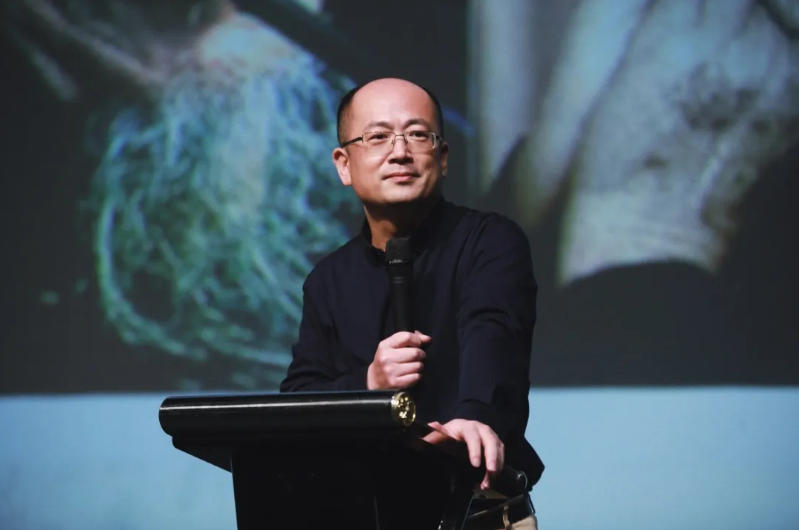
Dr. Zou Shien | A Physician’s Mission in Gynecological World
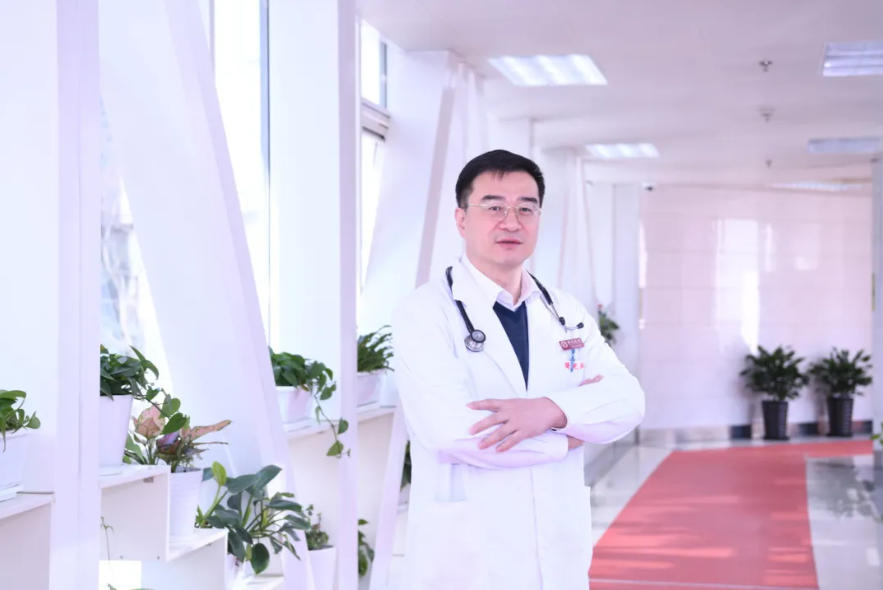
Dr. Cui Song | Healing the Heart, in Every Sense
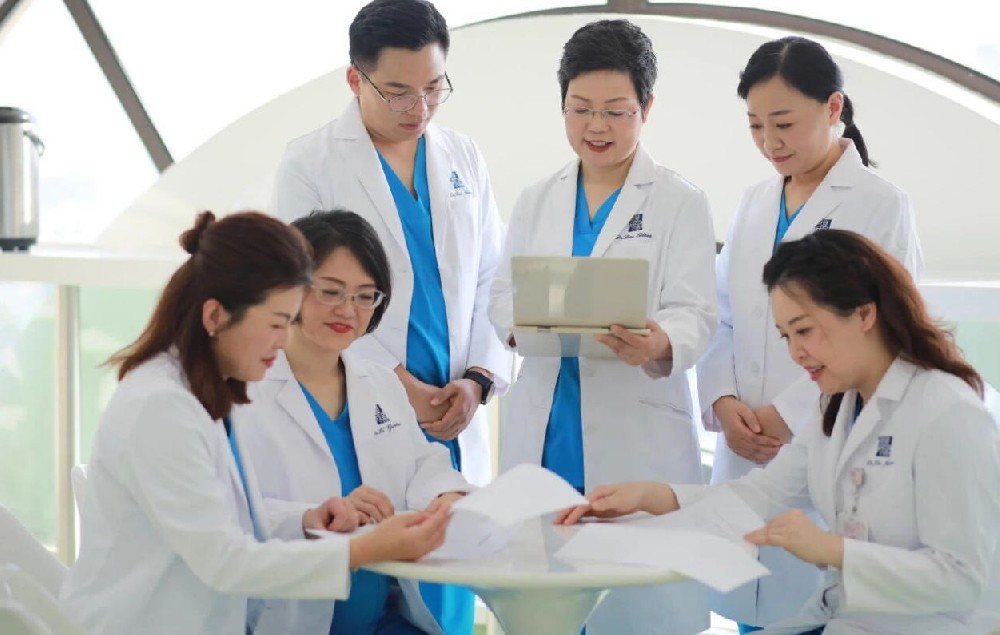
Dr. Bao Shihua | Where Dreams Begin from Reproductive Immunology
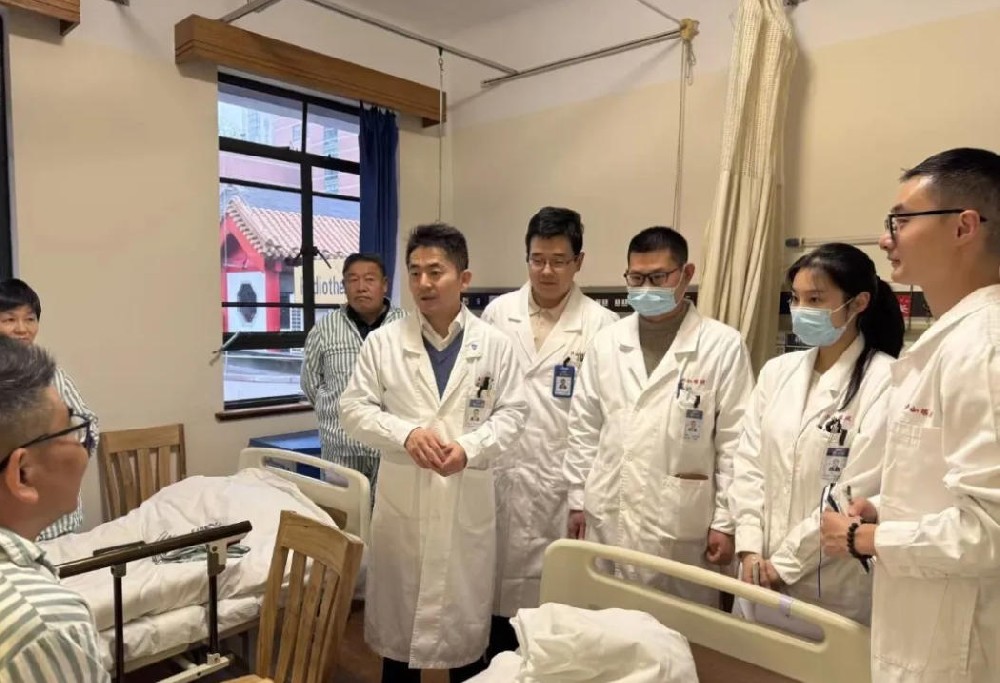
Dr. Yang Zhigang | The Art of the Healer: Between the Brush and the Brain
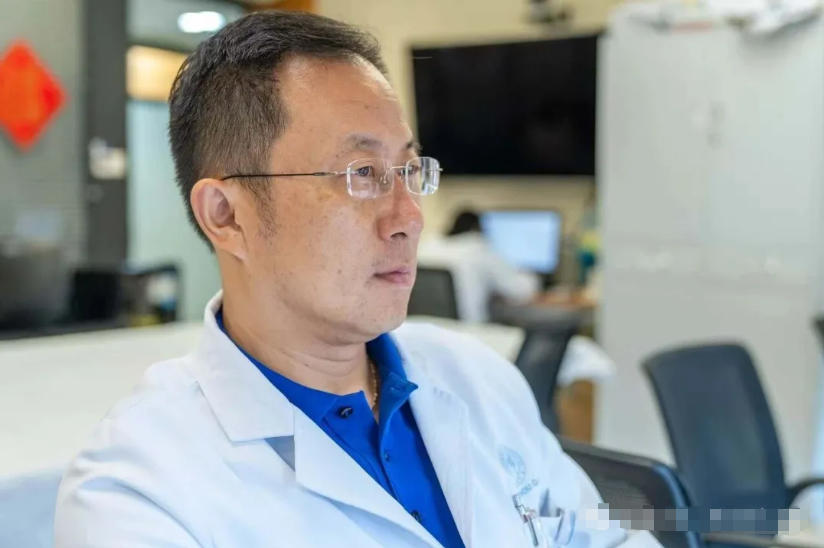
Dr. Zhou Qianjun | Sculpting Life in the Chest
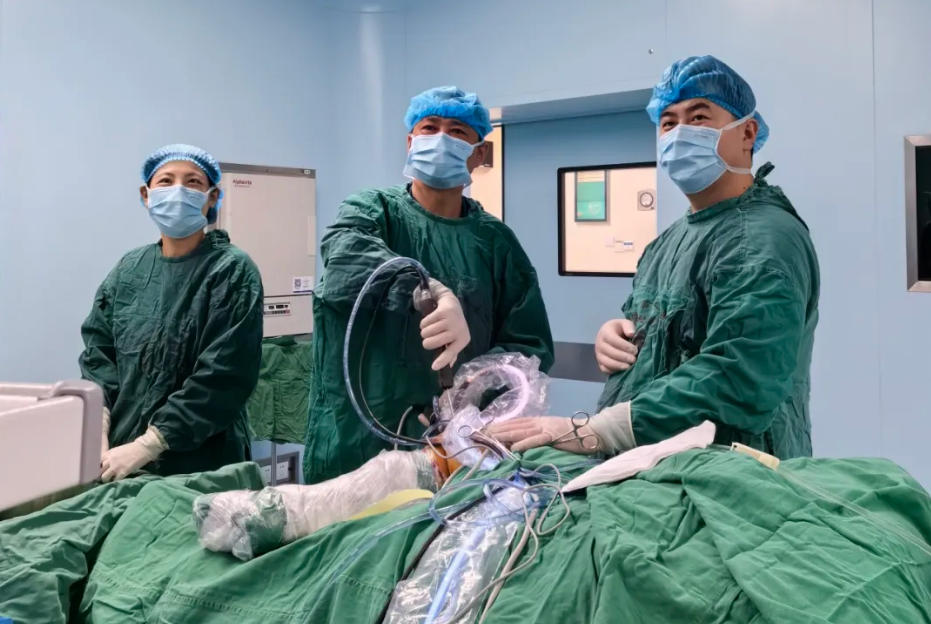
Dr. Cai Junfeng | Guarding Bone and Joint Health, Improving Quality of Life
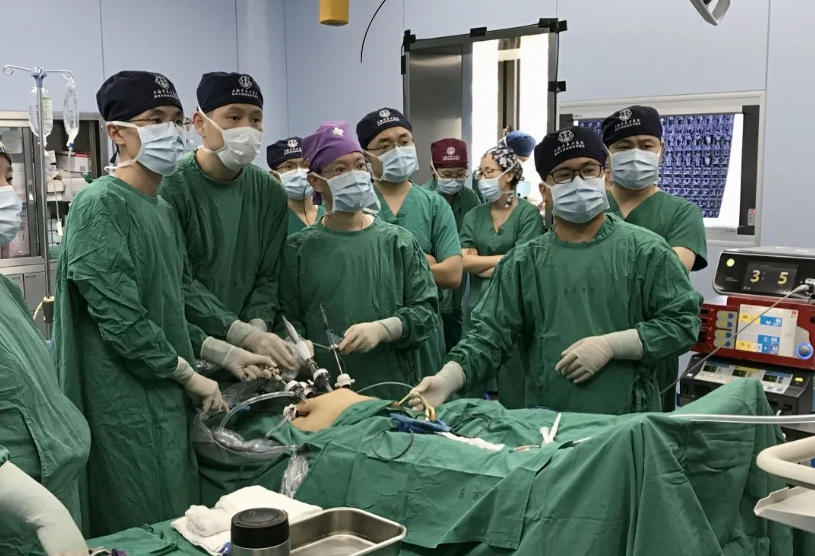
Dr. Cui Xingang | The Medical Dream of a Shanghai Urologist

Dr. Xu Xiaosheng|The Gentle Resilience of a Male Gynecologist

Dr. Shi Hongyu | A Cardiologist with Precision and Compassion

Dr. Zhang Guiyun|The Inspiring Path of a Lifesaving Physician